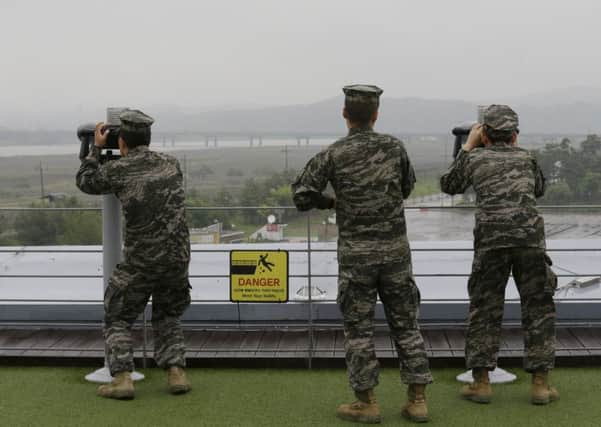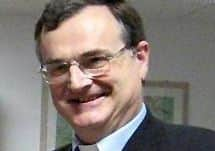The Christian churches have long been promoting peace on the Korean peninsula


The eyes of the world will surely be keenly focused on the encounter between the two men who have been at loggerheads.
Naturally, because the cause of peace is so much to the fore, the churches have been taking a considerable interest and, indeed, have had a long-standing involvement in promoting a positive and peaceful agenda in the region.
Advertisement
Hide AdAdvertisement
Hide AdAt the invitation of the Korean Christian Federation of North Korea, a joint delegation from the World Council of Churches (WCC) and the World Communion of Reformed Churches (WCRC) visited the North Korean capital, Pyongyang, from May 3-7 last.


The Church of Ireland and the Methodist Church are WCC members and the Presbyterian Church is a WCRC member.
Also, in 2014, Pope Francis visited South Korea and called for prayer “for the emergence of new opportunities for dialogue, encounter and the resolution of differences”.
On 27th April — only days before the WCC/WCRC delegation’s recent visit to Pyongyang — a historic meeting between the North and South Korean leaders, Chairman Kim Jong-un and President Moon Jae-in respectively, had taken place.
Advertisement
Hide AdAdvertisement
Hide AdThe venue was Panmunjom in the Demilitarized Zone between the North and South.
At that summit, President Moon and Chairman Kim jointly signed the Panmunjom Declaration for Peace, Prosperity and Unification of the Korean Peninsula, expressing the common goal of the “complete denuclearisation of the Korean Peninsula”.
In their later joint statement, the WCC/WCRC delegation commented that “extraordinary initiatives have created a new momentum for peace which the delegation strongly wishes to affirm, support and encourage”.
The joint statement also indicated that the President of North Korea’s Presidium of the Supreme People’s Assembly, Kim Yong Nam, and South Korean Minister for Unification Cho Myoung-Gyon, had “affirmed and emphasized the importance of the role of church leaders and faith communities in past and future efforts for peace and reunification of the Korean people”.
Advertisement
Hide AdAdvertisement
Hide AdNow the world is looking to the Trump-Kim summit and, despite North Korea’s unexpected pulling out of a scheduled North/South meeting yesterday, there have been some welcome signals from Pyongyang.
First, there was the release of three American detainees on May 10, during a visit to Pyongyang by US Secretary of State Mike Pompeo to make Trump-Kim summit preparations.
Two of the detainees were Kim Hak-song and Tony Kim, who had links with Pyongyang University of Science and Technology, a private institution strongly connected to evangelical Christianity.
However, the university reportedly has indicated that the arrests of the two men were “not connected in any way” with its work.
Advertisement
Hide AdAdvertisement
Hide AdThe third detainee was Kim Dong-chul, a pastor and former businessman.
The second welcome signal from Pyongyang has been its commitment to stop nuclear tests and launches and to begin dismantling its Punggye-ri nuclear test site – which, however, is said to have been seriously if not terminally damaged in the last test, in September 2017.
However, critical commentators point out that these moves could simply be for the purposes of staging an effect.
North Korea has spent a long time developing its nuclear weapons but the programme has been at the cost of severe sanctions and great economic hardship.
Advertisement
Hide AdAdvertisement
Hide AdThe country has reached a position where it is a nuclear power, understood to have the capacity to strike as far as the United States.
What North Korea surely now wants is relief from the punishing sanctions.
However, it would seem more likely that, contrary to US demands, the country will be prepared to accept only a limit to its nuclear capability rather than its immediate nuclear disarmament, however much the goal of a nuclear-free Korean peninsula may be voiced.
While there are grounds for hope that the current diplomatic moves, at the highest levels in both countries, will produce some good fruits, after the Trump-Kim summit there will be the hard task of working out the details.
Advertisement
Hide AdAdvertisement
Hide AdAt least if relations all round are brought swiftly to a relatively even keel and to better terms, that would be progress on which, hopefully, all sides would continue to build towards the ambitious goals of the Panmunjom Declaration, with the encouragement of the wider international community, including the churches.
l Canon Ian Ellis was editor of The Church of Ireland Gazette from 2001 until last year